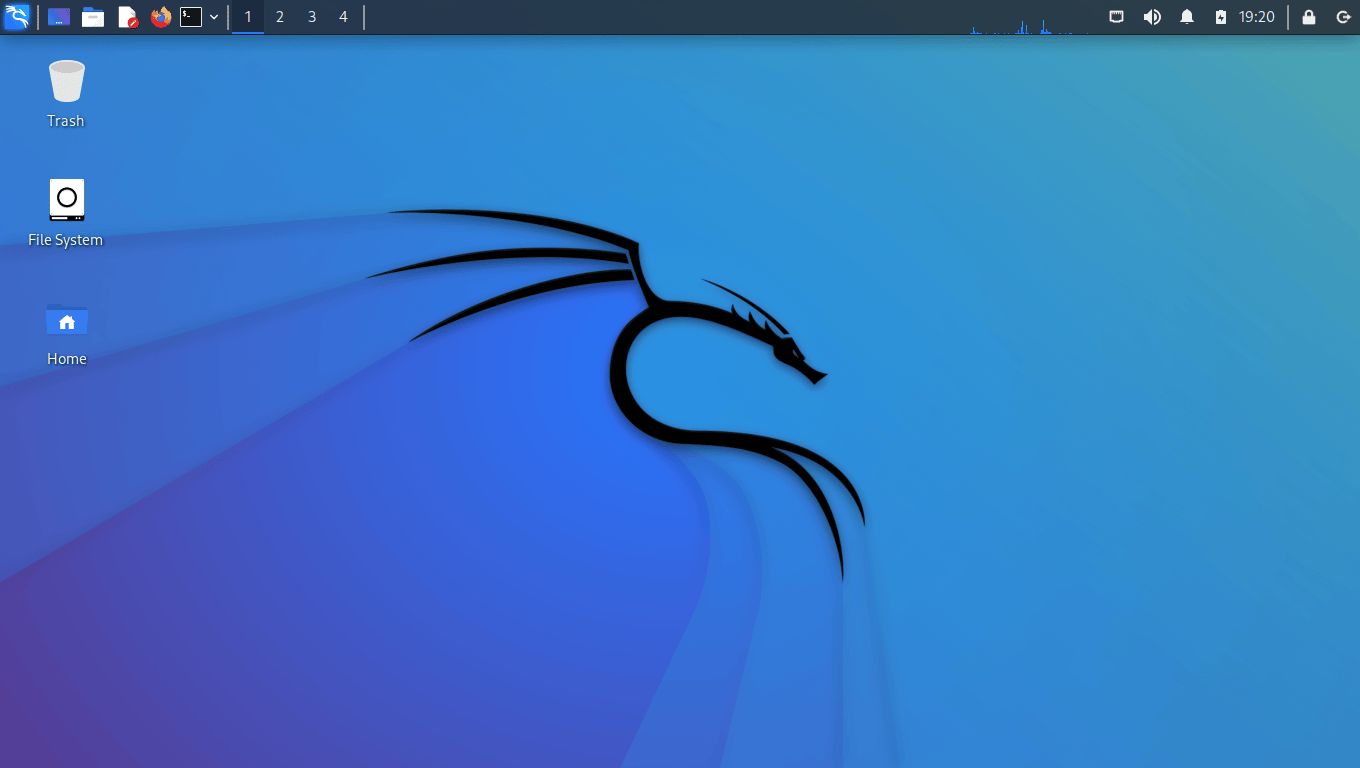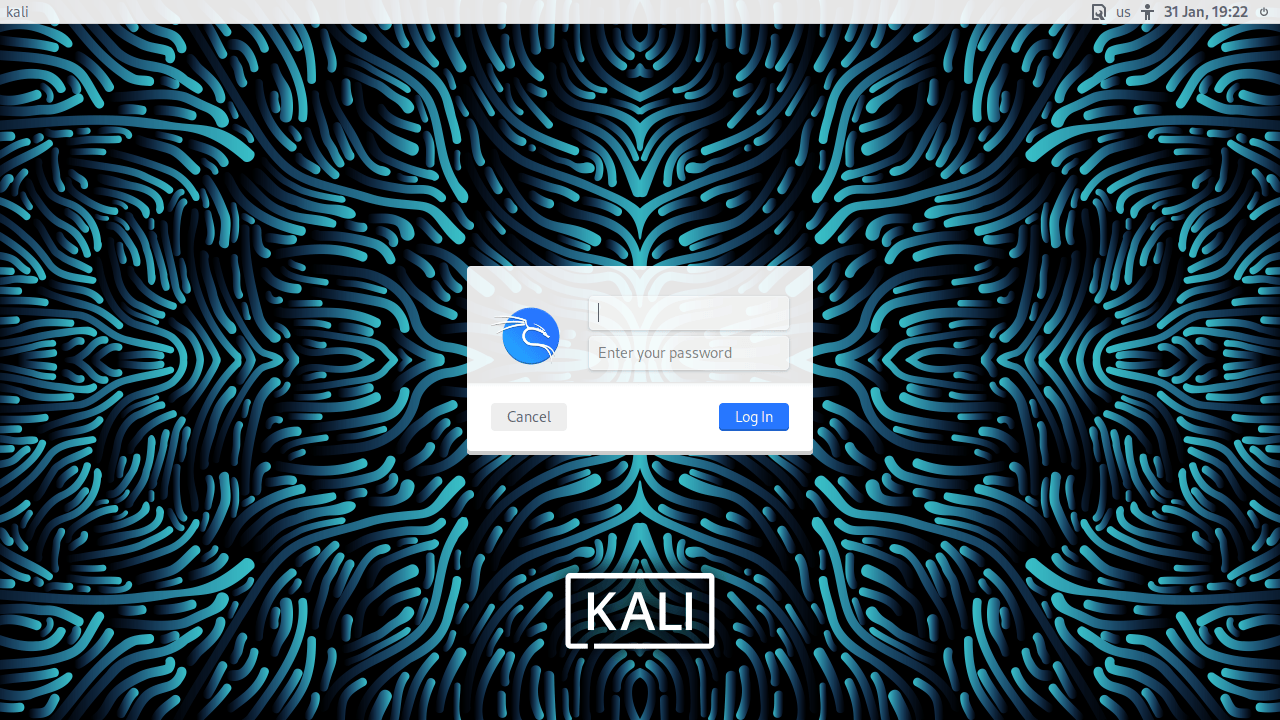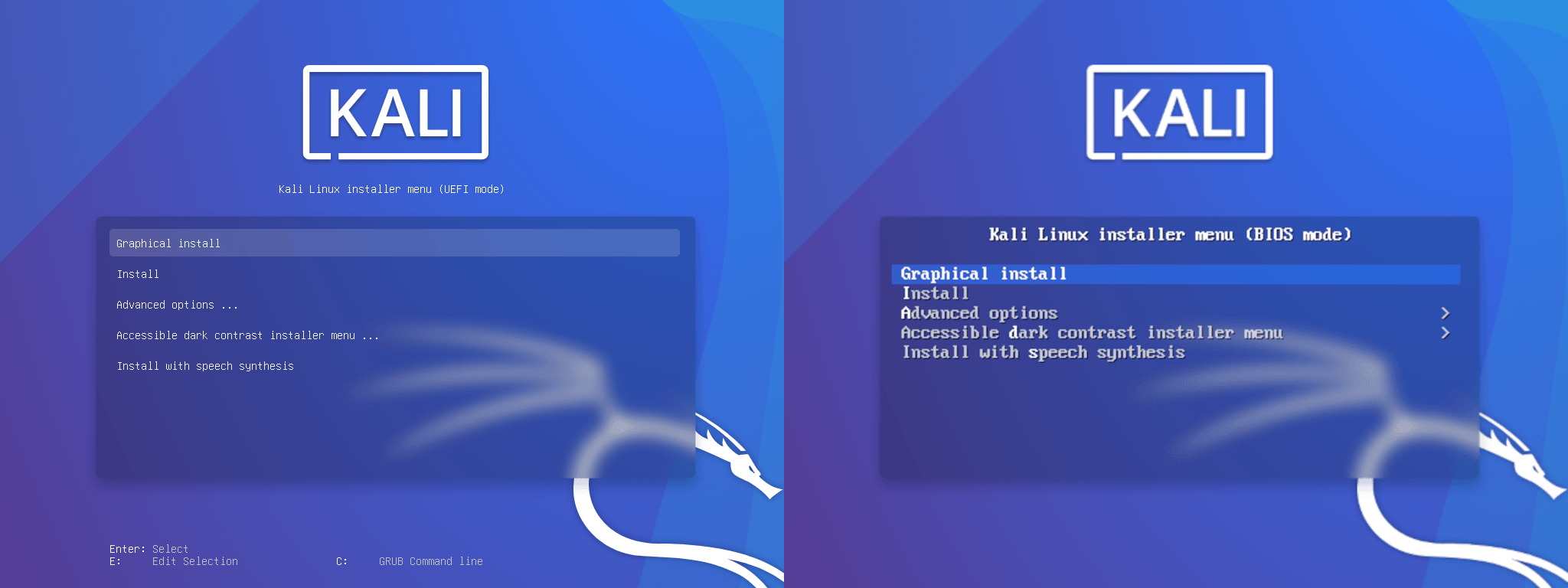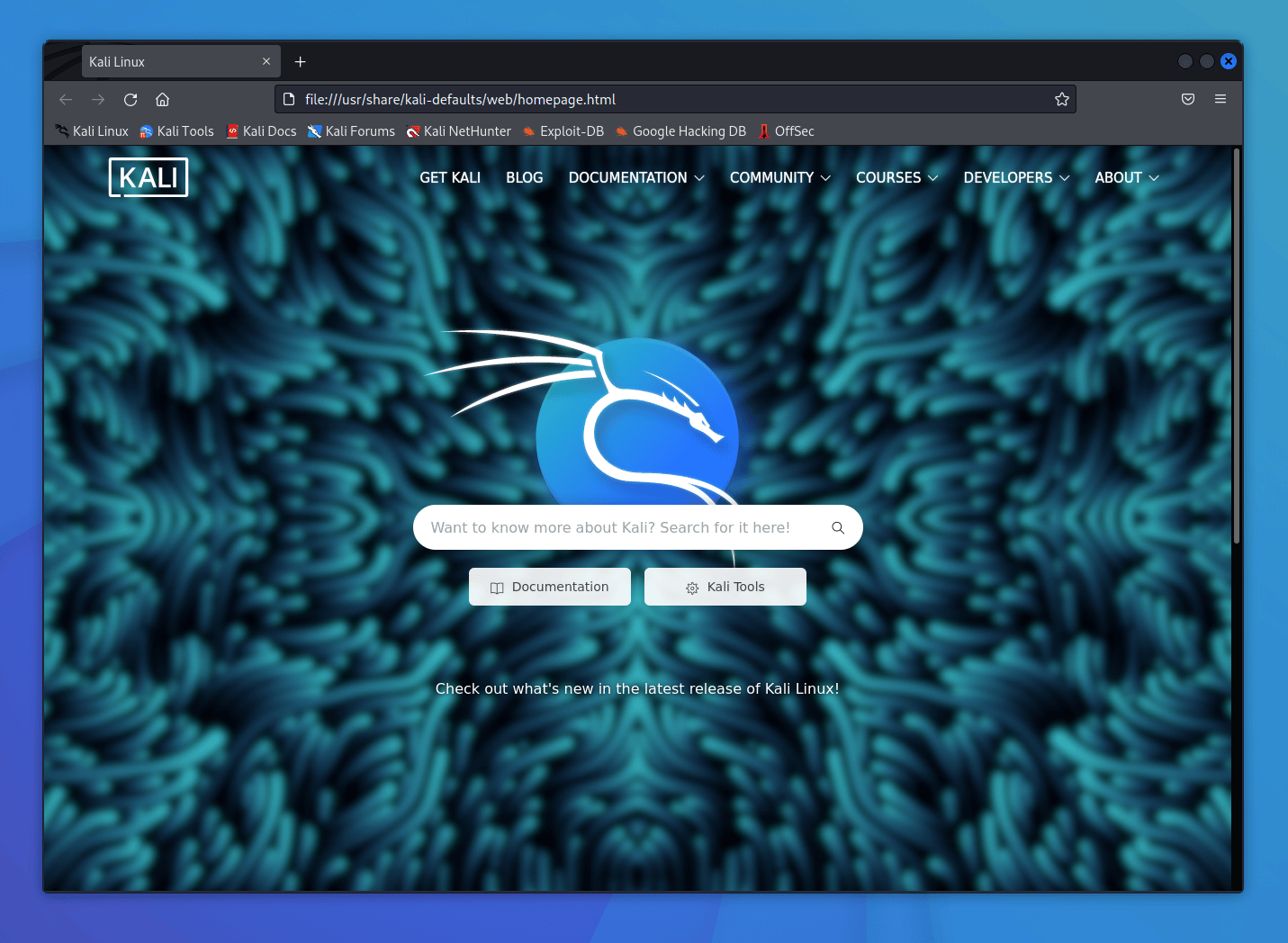Kali Linux 2022.1 Release with Visual Updates, New Tools, Legacy SSH

Reading Time: 2 Minutes
Offensive Security team has just released the first Kali Linux release of the new year with Kali Linux 2022.1. It brings visual updates like GRUB theme, new tools from ProjectDiscovery such as nuclei, naabu and tweaks to existing features.
The summary of the changelog since the 2021.4 release from December 2021 is:
- Visual Refresh – Updated wallpapers and GRUB theme
- Shell Prompt Changes – Visual improvements to improve readability when copying code
- Refreshed Browser Landing Page – Firefox and Chromium homepage has had a makeover to help you access everything Kali you need
- Kali Everything Image – An all-packages-in-one solution now available to download
- Kali-Tweaks Meets SSH – Connect to old SSH servers using legacy SSH protocols and ciphers
- VMware i3 Improvements – Host-guest features properly work now on i3
- Accessibility Features – Speech synthesis is back in the Kali installer
- New Tools – Various new tools added, many from ProjectDiscovery!
Besides that, they have been working on a new feature, which just isn’t quite ready yet (as the documentation is still in progress!). It’s a large one, so it’s going to have its own blog post once ready to help demonstrate its importance to us. This one is for you bare-metal installers!
Visual Refresh: Theme Updates
As promised back in Kali 2021.2, beginning with this release (2022.1) going forwards, their yearly 20xx.1 versions will be the only releases to have the main visual updates. Using a yearly lifecycle, it makes it easier to recognize the different versions of Kali Linux over time. This update includes new wallpapers for desktop, login, and boot displays, in addition to a refreshed installer themewhich you may have seen if you have recently updated.
Moreover, the functions, theme and layout of the boot menu present in our ISO images have been improved. With these changes, it makes them consistent throughout. Previously, the menus in the UEFI and the BIOS boot menus had different options, designs, and were also written differently, making them confusing. Throw into the mix that there were multiple differences between “installer”, “live”, “netinstall” and “mini” options as well. All of these problems have been addressed and they now have a universal feel to them all.
Refreshed Browser Landing Page
This release comes with a fresh new look for the default landing page shipped inside Kali. Utilizing the refreshed documentation sites (Kali-Docs and Kali-Tools), the search function will help you find almost anything you could need using Kali Linux!
New Tools in Kali
Between numerous packages updates, there has been various new tools added! A quick breakdown of what has been added (to the network repositories):
- dnsx – Fast and multi-purpose DNS toolkit allow to run multiple DNS queries
- email2phonenumber – An OSINT tool to obtain a target’s phone number just by having his email address
- naabu – A fast port scanner with a focus on reliability and simplicity
- nuclei – Targeted scanning based on templates
- PoshC2 – A proxy aware C2 framework with post-exploitation and lateral movement
- proxify – Swiss Army knife Proxy tool for HTTP/HTTPS traffic capture, manipulation, and replay on the go
Shout-out to ProjectDiscovery for their work & tools!
Kali ARM Updates
A list of packages that were previously not available for the arm64 architecture, and that have been added in this release:
Bluetooth should now be fixed on the Raspberry images, aside from the Zero 2 W, which they are still hunting down a fix for and will release an updated image when it is ready. There was a change with the bootloader that changed the serial device name being used.
Image file names have changed to be a bit more verbose with their naming, instead of using short-hand or nicknames of devices.
The build scripts now have a documentation page that explains them a bit more in depth.
The Raspberry Zero 2 W device has documentation now as well.
See Also: Offensive Security Tool: Stratus Red Team
Download Kali Linux 2022.1
Fresh Images: So what are you waiting for? Start downloading already!
Seasoned Kali Linux users are already aware of this, but for the ones who are not, they do also produce weekly builds that you can use as well. If you cannot wait for the next release and you want the latest packages (or bug fixes) when you download the image, you can just use the weekly image instead. This way you will have fewer updates to do. Just know that these are automated builds that they do not QA like they do our standard release images. But they gladly take bug reports about those images because they want any issues to be fixed before the next release!
Existing Installs: If you already have an existing Kali Linux installation, remember you can always do a quick update:
┌──(kali㉿kali)-[~]└─$ echo "deb http://http.kali.org/kali kali-rolling main non-free contrib" | sudo tee /etc/apt/sources.list
┌──(kali㉿kali)-[~]└─$ sudo apt update && sudo apt -y full-upgrade
┌──(kali㉿kali)-[~]
└─$ cp -rbi /etc/skel/. ~
┌──(kali㉿kali)-[~]└─$ [ -f /var/run/reboot-required ] && sudo reboot -f
You should now be on Kali Linux 2022.1. We can do a quick check by doing:
┌──(kali㉿kali)-[~]└─$ grep VERSION /etc/os-release
VERSION="2022.1"
VERSION_ID="2022.1"
VERSION_CODENAME="kali-rolling"
┌──(kali㉿kali)-[~]
└─$ uname -v#1 SMP Debian 5.15.15-2kali1 (2022-01-31)
┌──(kali㉿kali)-[~]
└─$ uname -r
5.15.0-kali3-amd64
NOTE: The output of uname -r may be different depending on the system architecture.
See Also: How ILOVEYOU worm became the first global computer virus pandemic
Source: www.kali.org
Read the full post on the Offensive Security’s website
















